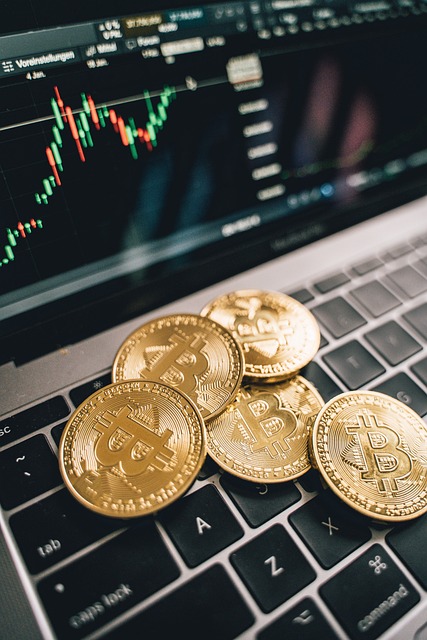Cryptocurrency exchanges face significant security challenges due to their centralized nature, but decentralized finance (DeFi) offers innovative solutions. By adopting advanced measures like multi-factor authentication, secure key storage, and blockchain technology, exchanges can protect user funds and maintain confidence in the growing DeFi ecosystem. While DeFi enhances transaction security and promotes financial inclusivity, it also introduces new vulnerabilities that require proactive solutions. The future of exchange security lies in integrating cutting-edge technologies, collaborating with regulators, and establishing best practices to ensure a safer digital asset trading environment. Users can protect themselves by enabling 2FA, keeping software updated, exercising caution with personal info, diversifying holdings, staying informed about DeFi trends, and monitoring transactions for fraudulent activities.
In the dynamic landscape of digital currencies, cryptocurrency exchanges act as gateways to a new financial order. However, they also present unique vulnerabilities, making security paramount. This article explores the evolving security measures within the crypto exchange ecosystem, highlighting the significant shift brought about by Decentralized Finance (DeFi) and blockchain technology. We delve into critical security protocols, analyze challenges, and provide insights into best practices for users navigating this innovative but complex financial reshaping.
- Understanding Cryptocurrency Exchanges and Their Vulnerabilities
- The Rise of Decentralized Finance (DeFi) and Enhanced Security
- Key Security Measures in Modern Crypto Exchanges
- Role of Blockchain Technology in Securing Cryptocurrency Transactions
- Challenges and Future Prospects for Exchange Security
- Best Practices for Users to Ensure Safe Crypto Trading
Understanding Cryptocurrency Exchanges and Their Vulnerabilities
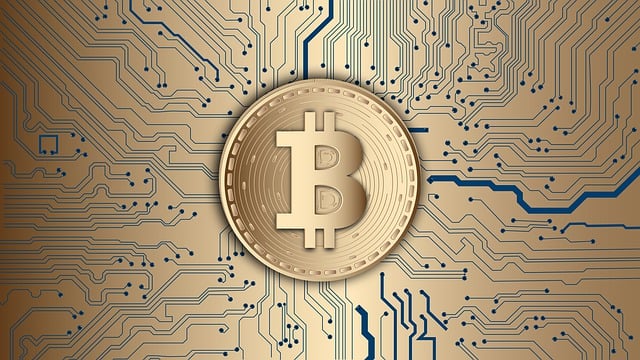
Cryptocurrency exchanges play a pivotal role in facilitating transactions and providing liquidity for digital assets, acting as a bridge between buyers and sellers. However, this centralization makes them attractive targets for cybercriminals. With millions of dollars worth of cryptocurrencies at stake, exchanges must constantly evolve their security measures to counter emerging threats. One significant factor contributing to these vulnerabilities is the decentralized finance (DeFi) landscape, which has spurred rapid innovation but also introduced new vectors for potential exploits and hacks.
As DeFi continues to reshape financial systems, cryptocurrency exchanges are on the front lines of this revolution. They must adapt not only to advanced hacking techniques but also to the dynamic nature of blockchain technology and the constant evolution of decentralized applications (DApps). This necessitates robust security protocols, including multi-factor authentication, secure storage mechanisms for private keys, and real-time threat detection systems that can identify suspicious activities at a moment’s notice. By staying ahead of these challenges, exchanges can ensure the safety of user funds and maintain public trust in this nascent financial revolution.
The Rise of Decentralized Finance (DeFi) and Enhanced Security
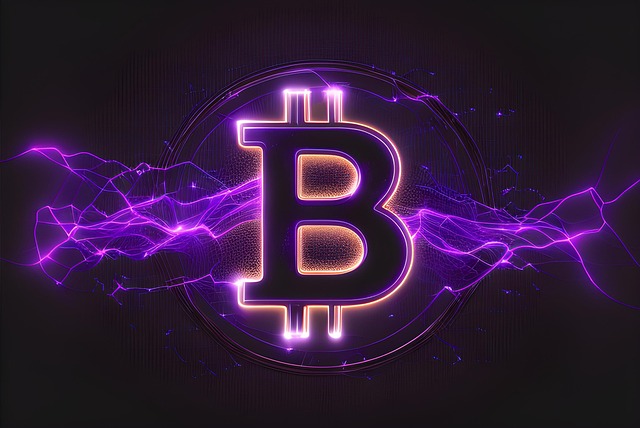
The emergence of Decentralized Finance (DeFi) has significantly contributed to the reshaping of the global financial landscape. Unlike traditional banking systems, DeFi platforms operate on blockchain technology, eliminating centralized intermediaries like banks. This revolutionary shift prioritizes user control and security through cryptographic principles. Each transaction is recorded on a transparent, immutable ledger, making it nearly impossible for fraud or manipulation.
DeFi’s enhanced security measures offer a robust alternative to centralized exchanges. With decentralized apps (dApps), users can access various financial services like lending, borrowing, and trading without relying on a single point of failure. This distributed architecture ensures that no single entity holds control over user funds, reducing the risk of hacking or unauthorized access. As DeFi continues to gain traction, its role in securing digital assets and promoting financial inclusivity is becoming increasingly evident.
Key Security Measures in Modern Crypto Exchanges
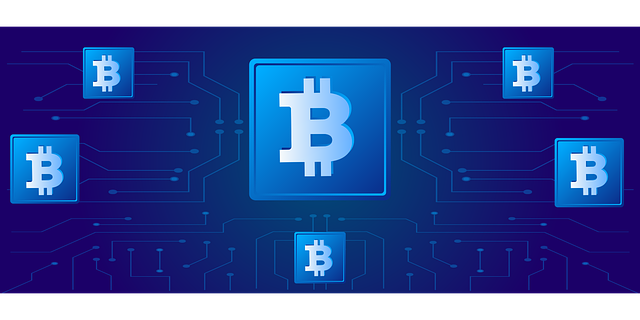
Modern cryptocurrency exchanges have implemented robust security measures to safeguard users’ digital assets, reflecting the evolving landscape of finance, particularly with DeFi’s role in reshaping financial systems. These include multi-signature (multisig) wallets, which require multiple private keys for authorization, enhancing transaction security. Exchanges also employ advanced authentication methods like two-factor authentication (2FA), biometric verification, and security tokens to ensure only authorized users gain access.
Another critical measure is cold storage, where funds are kept offline in secure facilities, reducing the risk of hacking and cyberattacks. Additionally, exchanges utilize smart contracts for automated, transparent, and tamper-proof trade execution, enhancing overall security and user trust. These innovations not only protect against common threats but also keep pace with the dynamic nature of digital currencies and financial innovation.
Role of Blockchain Technology in Securing Cryptocurrency Transactions
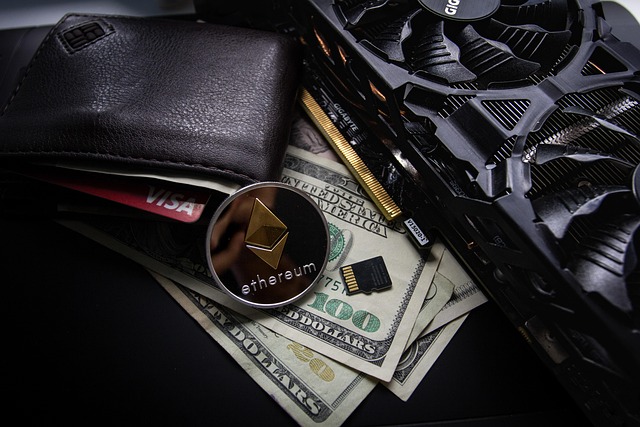
Blockchain technology plays a pivotal role in securing cryptocurrency transactions, forming the backbone of digital currency security. Its decentralized nature ensures that every transaction is recorded on a public ledger, making it nearly impossible to alter or manipulate data. Each block in the chain contains a cryptographic hash of the previous block, creating a secure and transparent system. This distributed structure means there’s no single point of failure or control, enhancing overall security.
In the context of DeFi (Decentralized Finance), blockchain technology is reshaping the financial landscape by providing secure and transparent peer-to-peer transactions. Cryptocurrency exchanges leverage smart contracts to automate processes like trading, deposits, and withdrawals, further reducing human error and potential fraud. This innovative application of blockchain technology not only enhances security but also fosters a new era of accessible and secure financial services for users worldwide.
Challenges and Future Prospects for Exchange Security

The evolution of cryptocurrency exchange security is a dynamic landscape, constantly evolving to meet the growing threats and demands of the digital asset space. One of the primary challenges lies in balancing accessibility and security, as exchanges strive to provide user-friendly interfaces while safeguarding against sophisticated cyberattacks. As DeFi (Decentralized Finance) continues to reshape the financial industry, it brings both opportunities and complexities to exchange security. Decentralization, a core principle of DeFi, can enhance security through distributed systems, but it also introduces new vulnerabilities that require innovative solutions.
Looking ahead, the future of exchange security involves embracing advanced technologies like blockchain, artificial intelligence, and secure multi-party computation. These tools can enable more robust authentication, real-time threat detection, and encrypted transactions. Furthermore, collaboration between exchanges, regulators, and cybersecurity experts is pivotal in establishing industry-wide standards and best practices. By leveraging DeFi’s potential while navigating its security nuances, the cryptocurrency exchange ecosystem can forge a safer path for digital asset adoption and trade.
Best Practices for Users to Ensure Safe Crypto Trading
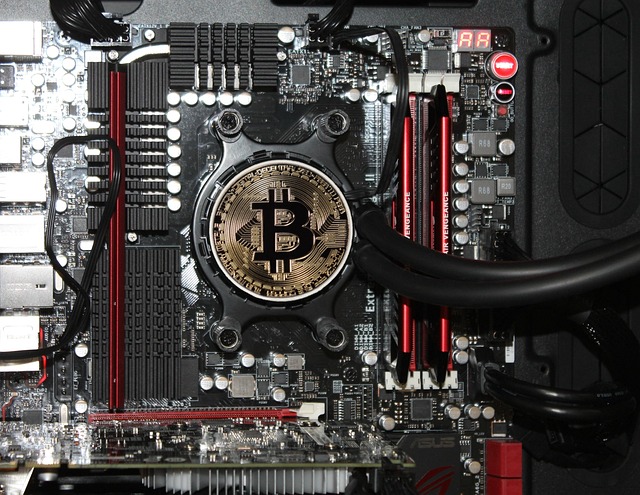
When engaging in cryptocurrency trading, users must adopt best practices to safeguard their digital assets. One crucial step is enabling two-factor authentication (2FA) for all exchanges and wallets, adding an extra layer of security beyond passwords. Additionally, keeping software and apps updated ensures protection against known vulnerabilities. Users should also practice caution when sharing personal information and never disclose private keys or login credentials.
Diversification is another key strategy. Distributing holdings across multiple platforms and assets reduces the impact of potential hacks or market volatility. Staying informed about DeFi’s role in financial reshaping is essential, as decentralized finance offers innovative security measures like smart contracts. Regular monitoring of transactions and enabling account alert systems can help users detect fraudulent activities promptly.
Cryptocurrency exchanges have evolved significantly, adopting advanced security measures to counter vulnerabilities. The integration of decentralized finance (DeFi) has played a pivotal role in enhancing these protections, offering a more secure landscape for crypto traders. As blockchain technology continues to reshape the financial world, exchange security will remain a dynamic frontier, presenting both challenges and opportunities. By implementing best practices, users can actively contribute to a safer crypto trading environment, leveraging DeFi’s transformative potential while navigating the evolving security panorama.
